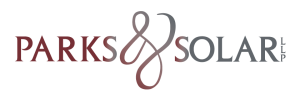
Keith Solar
Partner
ksolar@parksandsolar.com

On February 9, 2022, California’s governor signed into effect SB 113 and SB 114, which extend COVID-19 supplemental paid sick leave and expanded relief for small businesses.
SB 113 provided for an additional $150,000,000 in grants to qualified, waitlisted small businesses affected by COVID-19 and related health and safety restrictions. Further, this legislation designates income received by a business in the form of a federal shuttered venue operator grant, such as the Hard-Hit Small Businesses, Nonprofits and Venues Act, to be non-taxable income by the state for any funds received in taxable years starting January 1, 2019. The bill likewise restores net operating losses (NOLs) and removes the limit on business tax credits for the 2022 tax year, which includes removing the limit on the jobs tax credit, the California competes credit, motion picture production credits, and insurance tax credits.
SB 114 provides employees access to up to 80 hours of COVID-19 supplemental paid sick leave (“CSPSL”) through September 30, 2022, which may be used by employees who have been advised to quarantine, those caring for COVID-impacted family members, attending a COVID-19 vaccination appointment, and other COVID related work absences. Small businesses employing 25 or fewer workers are exempt from the legislation. Businesses with more than 25 employees are required to pay non-exempt employees either by using their same manner as the regular rate of pay for the employee’s workweek, or by computing the employees total wages (exempting overtime) by the hours worked in the prior 90 days. This is capped at $511 per day or $5,110 in the aggregate, after which employees are able to use PTO or sick leave. Employers may not require employees to use their PTO or sick leave in lieu of using the CSPSL. Employers are required to provide employees with statements on their pay dates or on their wage statements with the amount of CSPSL available and the amount they have used. Notably, while SB 114 is set to go into effect February 19, 2022, the bill is retroactive to January 1, 2022.
If you have questions about SB 113 or SB 114 or their impact on your business, contact our employment law attorneys or another qualified attorney.
Attorney Advertising. This document is not intended to be and is not considered to be legal advice. Transmission of this document is not intended to create, and receipt does not establish, an attorney-client relationship.
